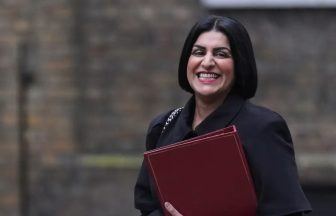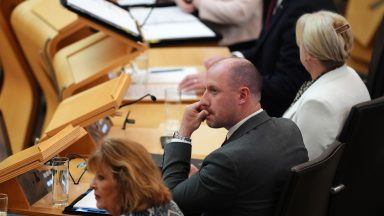The future of Keir Starmer’s welfare reforms are set to be decided on Tuesday when MPs will vote on the Prime Minister’s Universal Credit and Personal Independence Payment Bill.
Despite a significant U-turn last week, a significant Labour rebellion against the measures is still likely.
Two Scottish Labour MPs have signed a new rebel amendment to the UK Government’s welfare reforms, rejecting the concessions offered by ministers.
Context
-
 Keir Starmer faces internal dissent as his party prepares for a key Commons vote on controversial welfare reforms, with dozens of Labour MPs set to rebel
Keir Starmer faces internal dissent as his party prepares for a key Commons vote on controversial welfare reforms, with dozens of Labour MPs set to rebel -
 Two Scottish Labour MPs, Brian Leishman and Maureen Burke, have openly defied Starmer’s line, while others remain undecided
Two Scottish Labour MPs, Brian Leishman and Maureen Burke, have openly defied Starmer’s line, while others remain undecided -
 The Prime Minister was forced into a last-minute climbdown, offering concessions to preserve party unity — yet the reworked Bill still risks deepening poverty for 150,000 Brits
The Prime Minister was forced into a last-minute climbdown, offering concessions to preserve party unity — yet the reworked Bill still risks deepening poverty for 150,000 Brits -
 Disability rights campaigners argue the proposals will create inequality between existing and future claimants
Disability rights campaigners argue the proposals will create inequality between existing and future claimants -
 The backtrack has left Chancellor Rachel Reeves scrambling to cover a £3bn shortfall
The backtrack has left Chancellor Rachel Reeves scrambling to cover a £3bn shortfall
Brian Leishman and Maureen Burke have signalled their intention to vote against cuts to disability benefits in Tuesday night’s vote – but around a dozen Scottish Labour MPs are understood to still be making up their minds.
Starmer was forced to yield to political pressure from within his own party after 126 Labour backbenchers signed their names to an amendment to halt the welfare reform legislation in its tracks last week.
The Prime Minister’s welfare reforms originally proposed to cut Universal Credit health top-ups for new claims from April 2026, and scrap the Work Capability Assessment (WCA).
The reforms also vowed to review Personal Independence Payment (PIP) assessments and “focus PIP on those with higher needs”, while consulting on plans to delay access to the health top-up in Universal Credit until claimants turn 22.
The cuts to Universal Credit would have directly impacted benefit claimants in Scotland, while the other changes would have impacted the amount of money coming to Social Security Scotland for devolved benefits, like Adult Disability Payments, which replaced PIP for Scots.
The Scottish Government would have been responsible for making decisions about welfare and disability benefits based on its budget.
However, Labour rebels argued the plans were rushed and would push vulnerable disabled people into poverty.
After originally doubling down on the reforms, Starmer’s government was forced to back-track ahead of Tuesday’s crucial vote.
Under the concessions, work and pensions secretary Liz Kendall said PIP claimants will continue to receive the benefits they currently get, as will recipients of the health element of Universal Credit.
She said the planned benefit cuts will only hit future claimants.
Campaigners have accused the latest proposals of creating a two-tier benefits system, and official government analysis released on Monday showed the reforms will still push 150,000 people into relative poverty across the UK, rather than the 250,000 first suggested.
The U-turn will also leave UK Chancellor Rachel Reeves scrambling to find £3bn in savings elsewhere.
The concessions are believed to have won over the majority of the 120-odd MPs who had signed a wrecking amendment, but dozens of Labour MPs will still refuse to back the reforms on principle.
The reforms will be put to a vote on Tuesday evening. The House of Commons proceedings will be broadcast from the chamber.
Follow STV News on WhatsApp
Scan the QR code on your mobile device for all the latest news from around the country





























